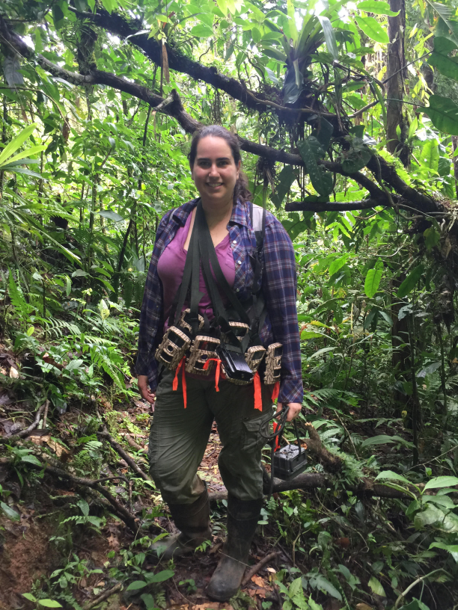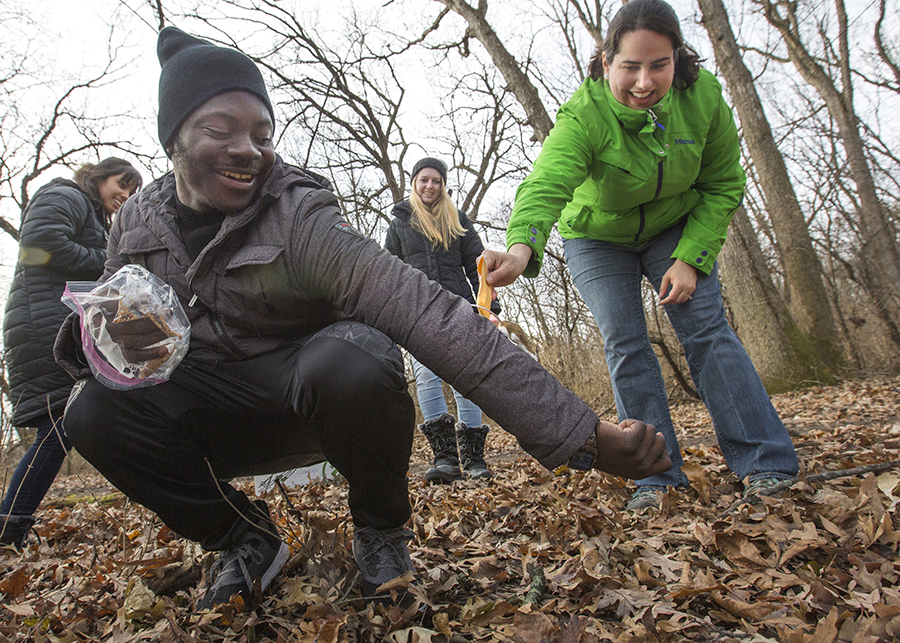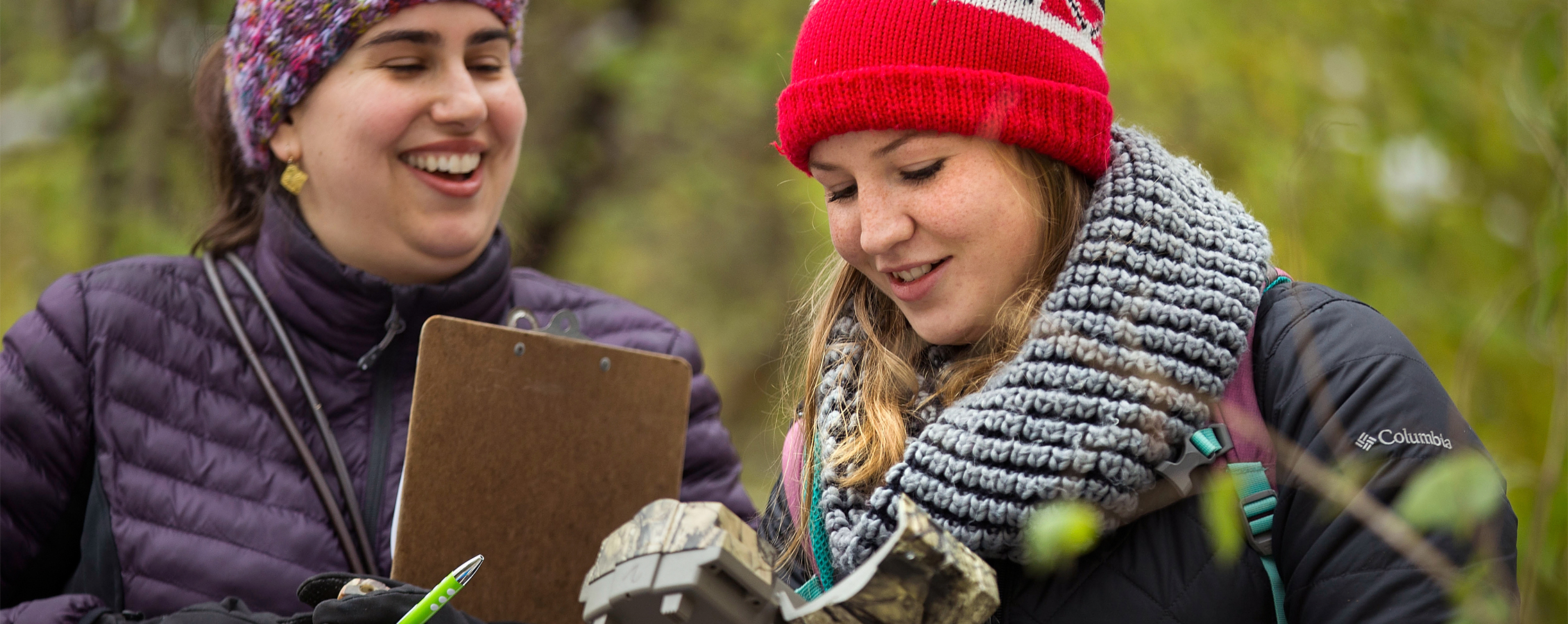UW-Whitewater professor wins Fulbright award to study desert ecology
March 22, 2023
Written by Judy Newman | Photos by Craig Schreiner and submitted
For Andrea Romero, the rainforests of Costa Rica have become almost a second home. She has been conducting research on the wildlife ecosystem in the Central American country for nearly two decades.
Lately, her focus has been on scavenging — how rainforest creatures use the carcasses of dead animals to maintain the circle of life in their habitat. This fall, she will turn her attention to the ecosystem cycle in a very different climate — the deserts of the Middle East — thanks to a prestigious honor she has won.
Romero, an associate professor in the departments of biology, environmental science, and women’s and gender studies at University of Wisconsin-Whitewater, will be a Fulbright Scholar for the 2023-2024 academic year. Romero will spend five months in Jordan, conducting research and establishing a partnership between undergraduate students at UW-Whitewater and Jordanian university students to further the project.
“We will combine my expertise in the rainforests with the expertise of Jordanian scholars and students in desert habitat and ecology, and create an integrative, collaborative project on biodiversity conservation and scavenging research,” Romero said.
A lifelong passion and pursuit of knowledge

Romero, who spent her early years living in Venezuela, her father’s native country, has been fascinated by animals and wildlife since she was a child.
“I remember going on a trip with my dad and seeing freshwater dolphins. I thought they were the coolest thing in the world, and I wanted to know everything about them.”
She began studying tropical rainforests as an undergraduate student at Carleton College in Northfield, Minnesota. Her initial focus centered on the impact that humans have on the animal population and the rainforest ecology.
“The effect of humans on the landscape can affect really important things the forests provide for us,” Romero said.
More recently, she began looking at scavenging, to understand its role in providing nutrients to other creatures and to the soil. Most of the existing research on scavenging, conducted in North America and Europe, found that vertebrates such as mammals, birds and reptiles were consuming the carcasses. Romero expected that would likely be the case in Costa Rica’s rainforests, too.
But when she left dead mice on the rainforest floor and monitored the area with trail cameras, insects were the first on the scene and made quick work of the remains. Most disappeared within 24 hours. In some cases, ants were the culprits. In other cases, small mounds of dirt appeared where the mice had been placed. She dug one up and discovered that beetles had found the carcasses, prepared them with a special solution, and buried them — to preserve them as a quick meal for their babies when they hatched.
“It was a huge surprise,” Romero said.
Through the Fulbright project, Romero hopes to find out how the heat of the desert affects the scavenging environment. She also plans to spend time in Costa Rica, mentoring students of color in conducting biological research.

A mouse scampers off the sleeve of biology major and Research Apprenticeship Program participant Annan Afahl. Behind him are, from left, Anna Catlin, a student photographer for the College of Letters and Sciences, environmental science major Brittany Goebel, also a RAP student, and faculty member Andrea Romero. Eight mice that were live-trapped earlier in the semester for a study were returned to their home habitat off of a woodland trail in the campus prairie restoration area on Tuesday, Dec. 19, 2017.
Making an impact at UW-Whitewater
Romero, who earned a Ph.D. in ecology and evolutionary biology from the University of Kansas, came to UW-Whitewater as a postdoctoral fellow in 2014 and is now a tenured professor. She teaches classes in her three departments, mentors students and works with them in her research lab.
Romero’s broad range of knowledge adds dimension to her classes, said Margo Kleinfeld, chair of the university’s Department of Geography, Geology and Environmental Science.
“She brings her expertise in diversity and inclusion into her biology classes, and she brings her STEM expertise into her women’s and gender studies classes. That kind of cross-pollination is very special and increasingly necessary in our world today,” Kleinfeld said.
She said Romero has developed courses that emphasize conservation biology as well as field research skills, and she seeks out underrepresented students to work in her lab and accompany her on projects in Costa Rica.
“We’re lucky to have her,” Kleinfeld said.
Romero is enthusiastic about the students she works with.
“The best thing about UW-Whitewater is our students. I love how curious they are and how interested they are.”
A big advantage of the campus is its size, she said.
“We are undergraduate-focused. You will get attention, experience and time with your professors. In environmental science and biology, you will be out in the field collecting samples and getting real-life experience.”

